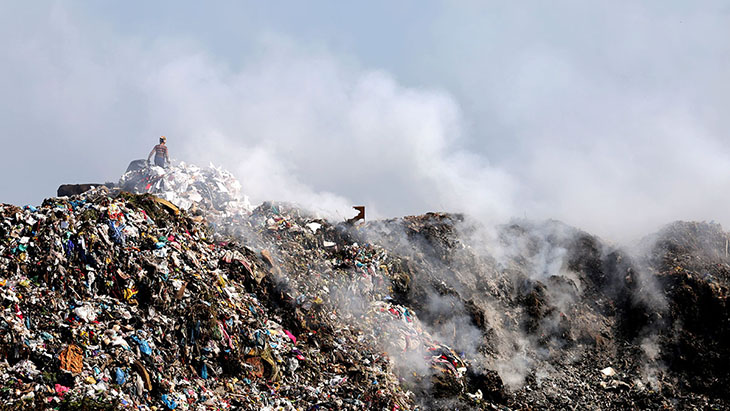
When it comes to climate change, greenhouse gasses are often seen as the culprit. Scientists have been searching for ways to cool the atmosphere and to make sure that man plays a huge role in helping abate the change.
These greenhouse gasses come from different products, be it industrial or agricultural. As for the most dangerous gas found in the atmosphere, methane has often been the top on the list. However, recent findings show that this may actually not be the case.
While methane has always been assumed to be harmful for the climate, and rightfully so, a new study of the greenhouse gas shows that its effects may not be as detrimental than what was once assumed by many experts.
There are different sources of methane gas emissions and the biggest ones come from coal, oil, and gas development. However, what people most know about are the emissions that come from agriculture as these have been heavily publicized in the past years.
This is how it works: the planet absorbs heat from the sun. Then, it would radiate the long-wave energy back into space. However, the presence of greenhouse gasses trap the heat inside. The heat that stays in the atmosphere is what brings about ‘the greenhouse effect’.
Scientists from the University of California-Riverside looked into this phenomenon even further. They discovered that methane also has the ability to absorb short-wave energy, which, by creating the so-called cooling clouds, it can actually cancel 30 percent of its own heat. This heat is the gas that is created in the greenhouse effect.
More importantly and specifically, methane actually creates more low-level clouds that offset the short-wave energy from the sun and less high-level clouds that increase the outward radiation of long-wave energy radiating from the Earth.
“This has implications for understanding in more detail how methane and perhaps other greenhouses gases can impact the climate system,” said Robert Allen, UCR assistant professor of Earth sciences. “Shortwave absorption softens the overall warming and rain-increasing effects but does not eradicate them at all,” he added.
They also found, as Allen stated, that methane has the innate ability to cancel as much as 60 percent of increased levels of precipitation that has been predicted under global warming models. This can be seen as something hopeful for areas that are found around zones prone to flooding.
For many reasons, this finding may be considered a revolutionary discovery because the experts from EPA say that methane’s greenhouse effect is 34 times more than that of CO2. By looking at the U.S. as an example, methane accounts for only around 10 percent of the nation’s emissions. As for the lifespan of a methane molecule in terms of its harmful effect on climate, it is said to be around 9 years.
Simply put, the methane that was found in the atmosphere 9 years ago no longer has an impact on the greenhouse effect. On the other hand, the greenhouse effect of CO2 molecules has been seen to last as long as 1,000 years.
For years now, climate scientists have known that methane was a critical greenhouse gas for people to look into further. With the latest findings, experts can now create more accurate models that exactly reflect how methane is 30 percent less harmful than once assumed and how it can counteract 60 percent of its own harmful rain effects.
In a paper published in 2021, Inter-governmental Panel on Climate Change (IPCC) member, and Oxford professor of geosystem science, Myles Allen, presented how over-accounting for methane’s effect, particularly the ones that come from animal agriculture, risked “the reputation of environmental policy, and… undermining public confidence.”
While the most recent climate models don’t consider these newly-discovered effects, the new research from UC Riverside, climate forecasts will be better and more accurate when it comes to assessing CO2 vs methane emissions. This will help people in making decisions when it comes to making use of future resources to address issues of climate change.
What are your thoughts? Please comment below and share this news!
True Activist / Report a typo


